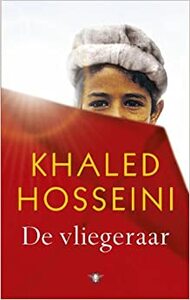You need to sign in or sign up before continuing.
Take a photo of a barcode or cover
Anyway, I found the novel profoundly interesting because I didn't go into it with any expectations as far as giving me insight into Afghanistan, the Taliban or Muslim life in post-Cold War Asia. Hosseini earns the title of storyteller with this book and through the eyes of the main character, Amir, alludes in one part of the story that he's 'not that kind of writer' when asked to speak on the history of his country or his people through his writing. As a matter of fact, he stays extremely true to the voice of his character when he returns to his homeland during one point and he sees the affectations of the Taliban through naive eyes.
I also thought that the parallelisms between the two boys with no mother and the detachment between Amir and his motherland as well as the barren pomegranate tree and infertile wife further exacerbated the maternal theme in the novel. I believe that Hosseini really drove home a subtle point about our yen for strong nurturing influences and how acutely we are affected by their absence. (I also saw a little something in the symbolism of cutting kite strings but then I felt like I was reaching and told myself to shut up.)
All in all, it was an excellent read and a very hard book to put down. I highly recommend it if you like a good story and can accept the text with no agenda of your own.
Graphic: Rape
Graphic: Bullying, Cancer, Death, Gun violence, Pedophilia, Rape, Sexual assault, Sexual violence, Slavery, Terminal illness, Torture, Violence, Blood, Kidnapping, Grief, Religious bigotry, Suicide attempt, Death of parent, Murder, Gaslighting, Toxic friendship, Sexual harassment, War
Moderate: Adult/minor relationship, Child abuse, Drug use, Genocide, Infertility, Pedophilia, Abandonment
Minor: Confinement, Cursing, Self harm, Suicide, Medical content, Trafficking, Alcohol, Colonisation, Classism, Deportation



